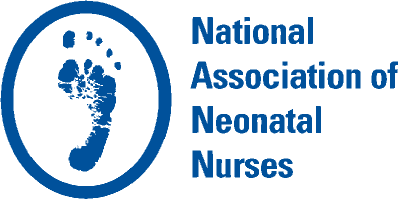41st Annual Conference Call for Abstracts
The National Association of Neonatal Nurses (NANN) is the premier organization that shapes neonatal nursing through excellence in practice, education, research, and professional development. The purpose of this conference is to offer comprehensive educational and networking opportunities for neonatal nurses, advanced practitioners, and other interprofessional providers across the spectrum of neonatal care. Sessions represent state-of-the-art advances in neonatal care, leadership, advocacy, and research.
The Annual Conference Committee would like to invite you to submit an abstract to present at the 41st Annual Conference taking place September 9 – 12 in Palm Springs, California.
NANN holds three calls for abstracts throughout the year to acquire content to be included in the Annual Conference program. The First Call for Abstracts, the NANN & VON Case of the Year, and the Second Call for Poster Abstracts. See the guidelines for each call below and select the call that works best for your content!
Resources for Abstract Submission
Call for Abstracts Submission Form
How to Submit an Abstract Webinar
Abstract Guidelines
- Presentations must avoid any semblance of commercialism: those constituting promotion and advertising are prohibited.
- The abstract should provide an accurate, succinct, and informative representation of the content you plan to present and be relevant to neonatal nursing.
- Presenters should plan to attend live in Palm Springs and provide a pre-recording for attendees to access on-demand.
- The reviewing committee recommends all submissions be completed projects, with reported results and conclusions.
- Submissions may be considered for presentations at the NANN APRN Summit or Preconference Workshop
First Call: October 1st, 2024 – January 6th, 2025
(Abstract notifications to be sent March 2025.)
Concurrent Presentation:
- 60-minute educational session (including time for questions).
- The primary presenter will be required to upload a video of their presentation before the conference for later distribution.
- Presentations may include up to 3 presenters.
- Presenters will be given a discount off their applicable registration type. Presenters must register for the conference and are responsible for all expenses relating to their presentations, including, but not limited to: registration fee (after speaker discount), air & ground travel, lodging, meals, and incidentals.
Paper Presentation:
- 15-minute educational session (including time for questions).
- The primary presenter will be required to upload a video of their presentation before conference for later distribution.
- Presenters must register for the conference and are responsible for all expenses relating to their presentations, including, but not limited to: registration, air & ground travel, lodging, meals, and incidentals.
Poster Presentation:
- 10-minute digital poster presentation (including time for questions).
- Poster should be created as a PDF for digital display.
- A brief audio recording presentation will be requested before the conference to enhance the poster for on-demand learners.
- Please note: Only digital posters will be displayed onsite. A physical poster will not be accepted.
- Poster presenters must register for the entire conference and are responsible for all expenses relating to their presentations, including, but not limited to: registration, air & ground travel, lodging, meals, and incidentals.
Case of the Year: March 10th, 2025 – April 1st, 2025
(Abstract notifications to be sent May 2025.)
Case of the Year Presentation:
- 60-minute education session examining a rare and unique medical case.
- Presentation will be given in a ‘mystery’ format for the audience to solve.
- Submitters must have parental consent for their submission to be accepted. You can download and print the form here.
- Topics may include an atypical presentation or outcome of a common disease, an unusual disease process or diagnostic challenge, an ethical challenge, a transport challenge, or a patient safety-related case
- Presenter will be given complimentary registration to the general conference. Presenters must register for the conference and are responsible for all expenses relating to their presentations, including, but not limited to: air & ground travel, lodging, meals, and incidentals.
Second Call for Posters: April 15th, 2025 – May 6th, 2025
(Abstract notifications to be sent June 2025.)
Poster Presentation:
- 10-minute digital poster presentation (including time for questions).
- Poster should be created as a PDF for digital display.
- A brief audio recording presentation will be requested before the conference to enhance the poster for on-demand learners.
- Please note: Only digital posters will be displayed onsite. A physical poster will not be accepted.
- Poster presenters must register for the entire conference and are responsible for all expenses relating to their presentations, including, but not limited to: registration, air & ground travel, lodging, meals, and incidentals.
- The Second Call for Poster Abstracts is intended for, but not limited to, Professionals in Training (currently engaged in a formal education/training program) and Early Career Professionals (5 or less years in the field).
The abstract review process includes a blind review (i.e., the reviewers are unaware of the applicant's identity). Therefore, applicants should be careful not to disclose their identity when describing their qualifications to present on their topic.
If you have any questions, please contact This email address is being protected from spambots. You need JavaScript enabled to view it..

